Having a balanced diet and getting proper nutrition are essential for our bodies. However, some of us forget that the brain, one of the most important parts of our body, also requires proper nourishment.
Everything we do, from seeing, hearing, and smelling to more complex tasks like analyzing, reacting, and deciding, requires brain function. Thus, it is vital that the brain gets the best support it can, from food to aromas, to work at its optimal level.
This article will feature five plants that you can grow to help improve your brain and memory function. If you want to know more about them, continue reading the article below.
- How Plants Improve Mental Health
- Peppermint for Enhanced Cognition
- Blueberry for Better Memory and Delayed Mental Aging
- Parsley for Stronger Neuron Formation
- Rosemary as a Brain Booster
- Chamomile for Better Brain Function

How Plants Improve Mental Health
We already know that plants are important in our daily survival, from food, construction materials, and medicine to transforming carbon dioxide (CO2) into oxygen that we breathe in.
However, they also have an effect on our mental health. Aside from being nice to look at and smell, the amount of care needed to keep plants alive, has a positive psychological effect on people.
It has been shown that people who spend more time with plants generally have healthier personal relationships and higher levels of happiness.
Plants Help You Concentrate and Remember Better
One study has shown that the presence of plants helps people concentrate better, whether at home or in the workplace. People perform tasks better, and with higher accuracy, under the calming influence of nature.
In addition to improved concentration, the University of Michigan study also showed that the influence of ornamental plants could increase memory retention and attention span by up to 20 percent.
Another study indicated that having flowers and other ornamental plants results in a significant improvement in people’s moods and decreases the chances of developing stress-related depression.
Peppermint for Enhanced Cognition
You may be familiar with peppermint as an ingredient for holiday candies and as a breath-freshening agent, but not many people are aware that it has medicinal properties, specifically its effects on the brain.
Research has shown that simply inhaling peppermint scent could enhance the brain’s cognitive functions, including reasoning, concept formation, and problem-solving.
It can even be used to alleviate symptoms of Alzheimer’s disease. What’s great about peppermint is that you can easily grow it in your home and even indoors.
Growing Peppermint at Home
Like other herbs, peppermint can be grown indoors, and it’s even considered by some as the best plant to begin an indoor herb garden with. You only need to consider a few things when taking care of peppermint.
They need to be placed in medium-sized pots of about two to three gallons, and you need to use a quality potting mix that’s light and soilless. Since peppermint loves moist soil, you should avoid underwatering or overwatering.
In terms of fertilizer, you can only use water-soluble all-purpose fertilizer occasionally to prevent it from losing flavor, but you can put a little compost or manure on the top layer. Regular pinching and pruning is recommended.
Blueberry for Better Memory and Delayed Mental Aging
One of the most common berries, the blueberry, is not only easy to grow, but its fruit has antioxidants that are good for aging neurons, resulting in improved cell signaling and delays in mental aging.
According to a study that examined more than 16,000 older people, those that intake blueberries regularly had mental aging delays of up to 2.5 years. Blueberries could also improve comprehension, decision-making, and memory.
You can eat blueberries fresh or frozen. They can be used as toppings for oatmeal, pancakes, or yogurt, mixed into a vegetable salad, added to bread or muffins or blended into a smoothie you can drink.
Caring for a Blueberry Plant
Because blueberries are self-fertile, it is recommended to plant two or more varieties together to get bigger berries and extend the harvest time. They need acidic soil with a pH level of between 4.5 to 4.8.
The soil should be well-drained because the plant’s roots are shallow. Regular watering is required to keep the soil moist during the growing season. The root zone of the plant should be targeted when watering.
Blueberries should be placed in a sunny but sheltered spot because they thrive under the sun but shouldn’t be subject to harsh and drying winds.
Parsley for Stronger Neuron Formation
Parsley is widely cultivated and is a commonly used plant for cooking. It is often used as a garnish for various dishes but is also used in soups and serves as the main ingredient of the Italian salsa verde.

Researchers have discovered that parsley contains a compound called apigenin, which has been observed to improve neuron formation and create a stronger and more sophisticated connection between brain cells.
Neuroscientists say that a strong neuron connection is critical to brain function, learning, and memory consolidation.
They also believe that this compound could help treat neurodegenerative diseases.
Planting Parsley at Home
Parsley can be started indoors or directly sown in the garden and enjoys organic matter-rich soil that is well-draining. It should be placed in a spot with full sunlight of about six to eight hours a day and away from weeds.
Especially during the summer, parsley plants should be kept sufficiently watered, and to conserve moisture, you could lightly mulch around the plants. It can be harvested once the leaf stems have three segments.
To maintain the freshness of harvested parsley, you may place the stalks in water and keep them in the fridge or completely dry, crumble, and store them in an airtight container.
Rosemary as a Brain Booster
Just like peppermint, rosemary can also be used for aromatherapy, and according to a 2012 study, people who sniffed rosemary essential oil while taking their cognitive tests were faster and more accurate.
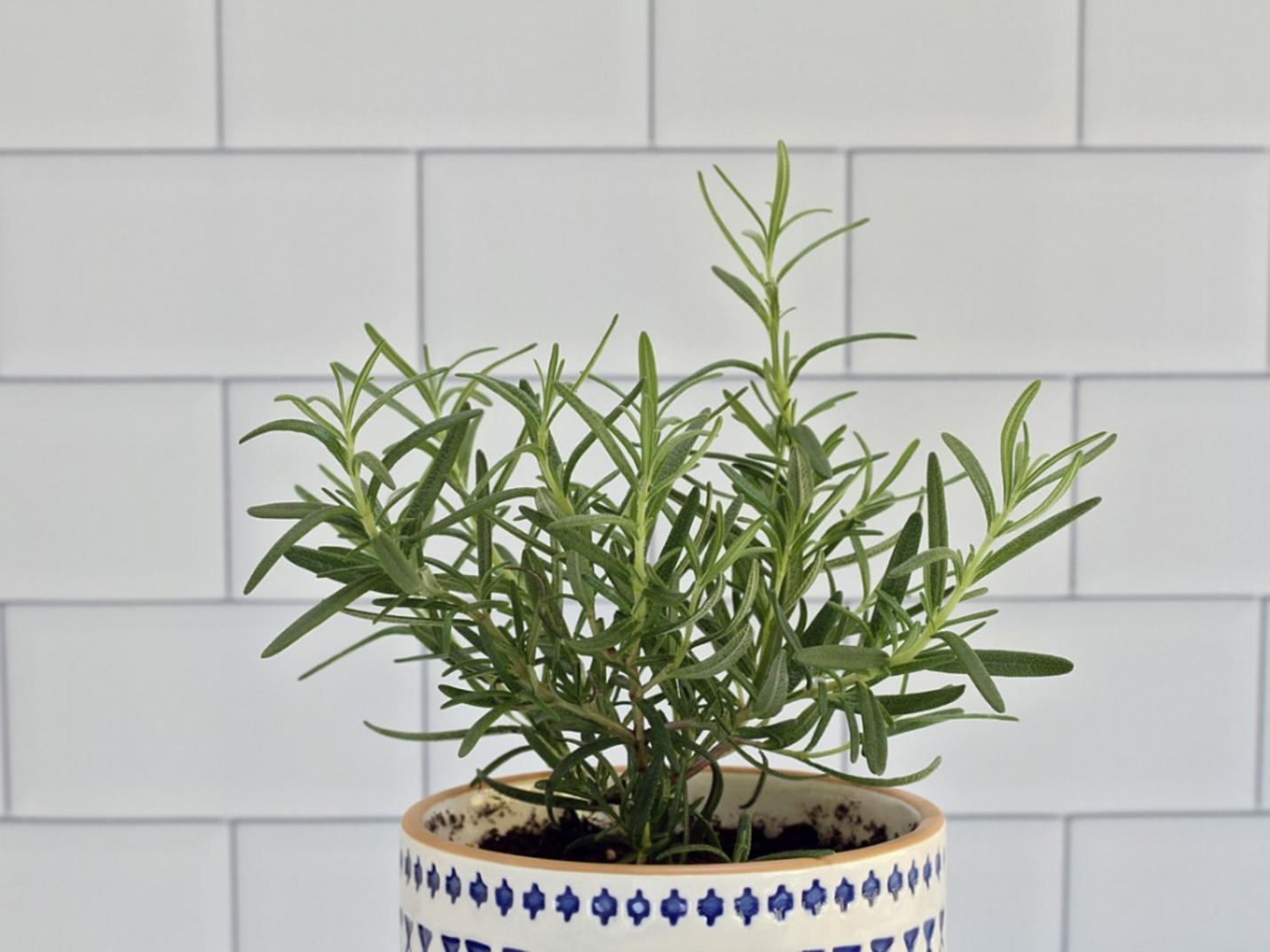
Other studies have also shown the positive impact of rosemary’s scent on memory quality and mental alertness. If you don’t have a diffuser, you may add a few drops of rosemary oil to lotion and apply it to your neck.
In addition, an active ingredient found in the plant called carnosic acid could protect the brain from free radicals. You may consume this if you add rosemary to the dishes you cook.
Cultivating Rosemary at Home
Rosemary seeds are slow to germinate and grow, so it is recommended that you start growing them indoors. Use small pots or egg cartons for your seed-starting mix made from perlite and peat moss.
Once the mix is ready, add the rosemary seeds, lightly water using a spray bottle, and then cover with a plastic dome or plastic wrap. This should be stored in a sunny, warm spot until the seeds start to germinate.
The cover should be removed once seedlings appear, and upon reaching three to six inches in height, they can be transplanted outdoors. Use compost-rich soil with good drainage for your rosemary plants.
Chamomile for Better Brain Function
It’s not surprising that chamomile, the flowering plant used in traditional medicine and added to food and beverages, also has positive effects on our brain’s condition.
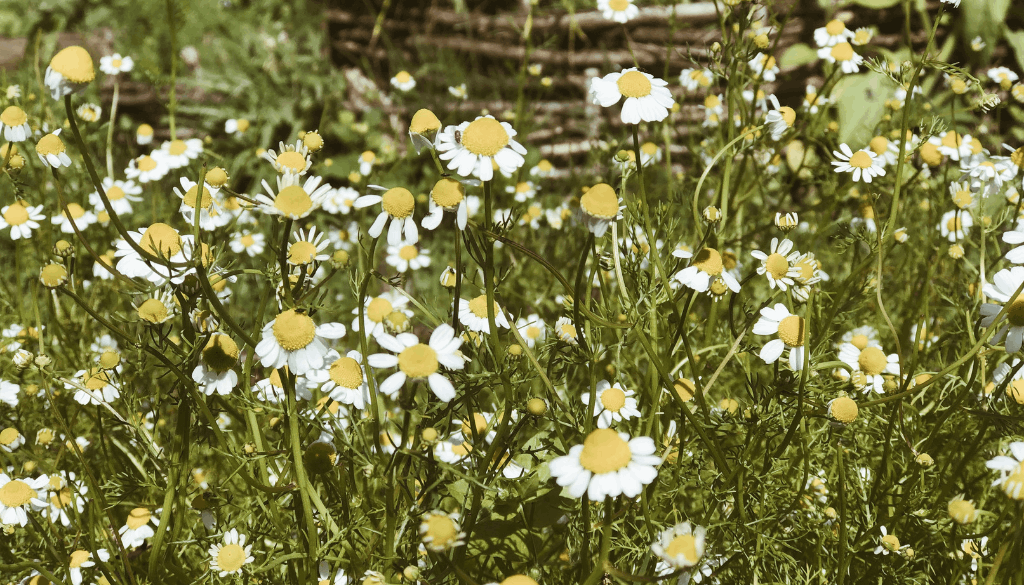
An Imperial College of London study revealed that consuming chamomile increases the body’s production of glycine and hippurate, substances that act as natural relaxants, preventing anxiety and stress.
The plant also has potent properties for helping maintain an active nervous system.
It helps the brain in the development of neuronal capacities, resulting in the improvement of memory and concentration.
Caring for Chamomile Plant at Home
Chamomile plants best grow in well-drained and sandy soil and in a place where it receives full sunlight. However, during hot climates, a small amount of shade is needed to prevent them from drying out.
Throughout the growing season, chamomile needs an inch of water weekly. Make sure that the soil around the plant is consistently moist but do not overwater.
You will know when the plant is ready for harvest once you see the flower petals start to droop backward. Snip the flower heads off each stem, dry them in a loose paper bag with air, and store them in an airtight container.
Conclusion
While there may be other plants that help improve brain and memory function, these five are the easiest to grow and maintain at home. Start with one plant, which you think will best suit your goal of promoting brain health, and then try out the others once you get started.
There may be a lot of manufactured supplements and vitamins available in the market, but the natural compounds from the plants on this list are a great way to ensure that our brain functions properly and at optimal health.







